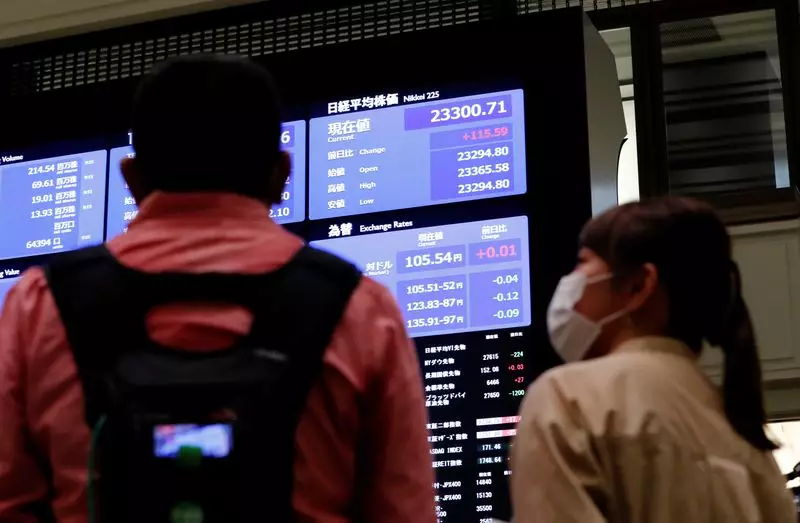In the week ending July 5, foreign investors made significant investments in Japanese stocks, amounting to a net purchase of 916.05 billion yen. This surge was primarily driven by a market rally and the optimism surrounding solid corporate earnings in the second half of the year. The Nikkei share average saw a significant jump of 3.36%, making it the best weekly gain since March 22. Similarly, the broader Topix index advanced by 2.65% during the same period. The market also witnessed the Nikkei hitting an all-time high, crossing the 42,000-point mark for the first time, while the Topix index achieved a record closing high of 2,929.17.
One of the key beneficiaries of this surge in foreign investments was the Japanese technology sector. The gains in U.S. megacap growth stocks had a ripple effect, leading to a rise in Japanese technology shares. Companies like SoftBank and Advantest saw significant increases, with SoftBank Group surging by 8.04% and Advantest rising by 3.2%. This indicates the interconnected nature of global markets and how movements in one market can impact another.
While foreign investors showed a strong preference for Japanese stocks, there was a noticeable pullback from Japanese bonds. Overseas investors sold long-term bonds worth a net 228.8 billion yen and short-term instruments totaling 876.9 billion yen. This shift in investment patterns hints at a potential reevaluation of risk appetite and asset allocation strategies. On the other hand, Japanese investors reversed their two-week selling streak in overseas debt markets. They focused on securing long-term foreign bonds amounting to a net 237.7 billion yen and short-term securities worth about 96.6 billion yen.
It is interesting to note that while foreign investors showed a strong interest in Japanese stocks, Japanese investors were withdrawing funds from foreign equities. A net withdrawal of 555.6 billion yen was recorded, marking the largest weekly disposal since May 31. This contrasting behavior between foreign and domestic investors highlights differing perspectives on market conditions and investment opportunities.
The influx of foreign investments in Japanese stocks during the week ending July 5 had a significant impact on the market. The rally in stock prices, particularly in the technology sector, showcased the interconnected nature of global markets. The shift in investment patterns and contrasting behaviors of foreign and Japanese investors suggest a dynamic and evolving landscape in the financial markets.


Leave a Reply